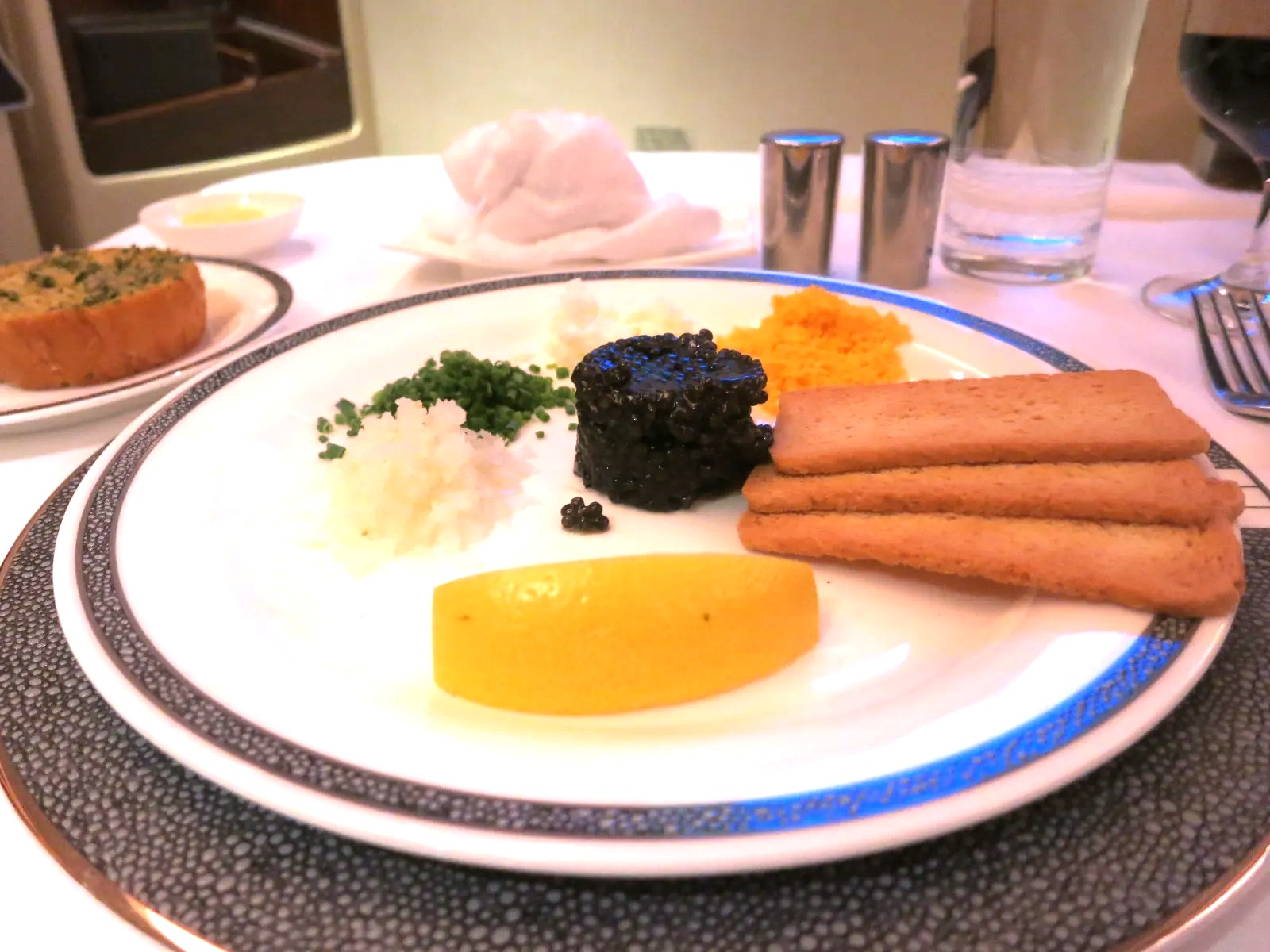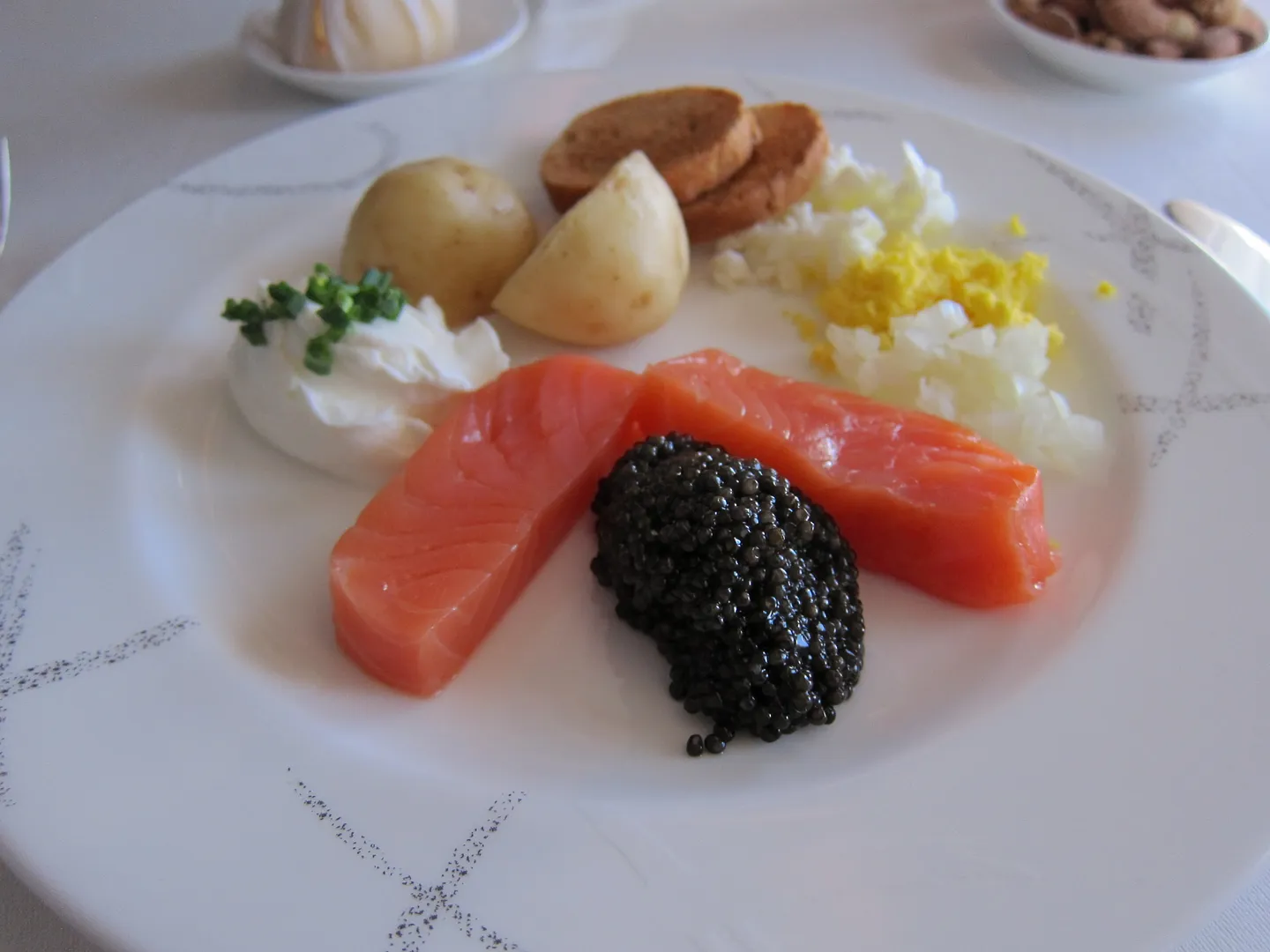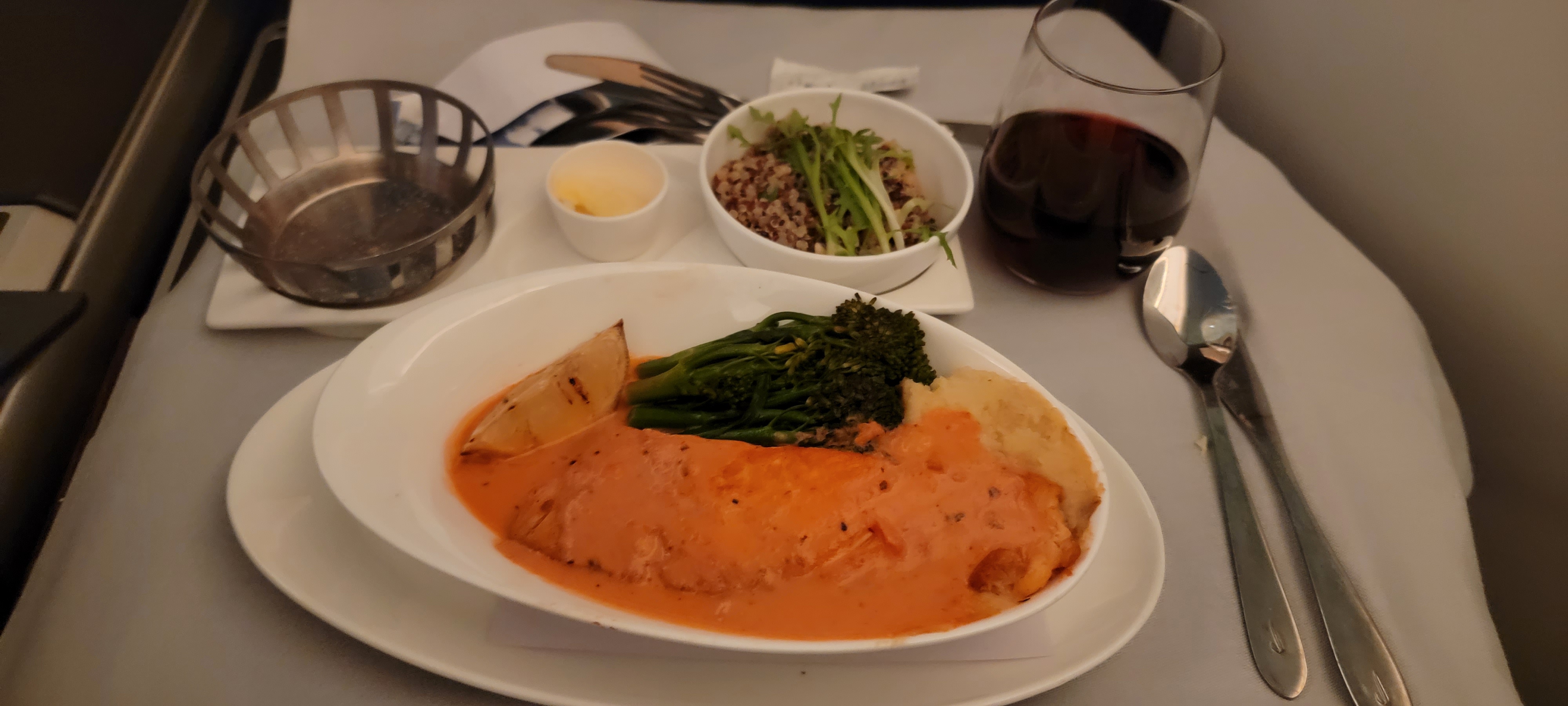The $2M Secret To Qatar Airways Business Class Dominance: How Caviar Service Changes Everything – View from the Wing

The $2M Secret To Qatar Airways Business Class Dominance: How Caviar Service Changes Everything
Qatar Airways, which has one of the world’s best business class products (if not the world’s best), introduced caviar service back in August. That’s something usually reserved for long haul first class. A decade ago, Lufthansa reportedly was purchasing 5% of the world’s caviar supply for their first class passengers. Singapore Airlines and Emirates offer substantial caviar services.
Many times I enjoyed Cathay Pacific for balik salmon and caviar.

The business class cabins on Qatar Airways Boston, Dallas, Hong Kong, Houston, London, Los Angeles, Melbourne, New York, Paris, Sao Paulo, Singapore, Sydney, and Washington Dulles service now features caviar. Oliver Ranson runs the numbers on this investment. It’s only costing Qatar $1 – $2 million per year, and gives them a huge premium halo over their product.
Consider that American Airlines Flagship First Class serves the same food as their business class, with the mere addition of a soup course and they serve $8 wines. It doesn’t take much to elevate a product. Qatar Airways shows that they invest in the details while others do not.
In contrast, United’s new investment in top quality wines like Freemark Abbey cabernet likely costs them incrementally much more.
- Qatar is serving Baerli caviar which retails for about $20 per serving. At a 50% volume discount that’s $10 per serving. (They could be paying as little as $5.)
- This could increases the per-passenger food cost for those taking caviar “by about 50%, from around $20 on a long-range flight to $30.”
- The airline is selling about 6,800 business class seats per day, but just 1,300 on caviar routes. At 85% load factor and caviar boarded for 50% of passengers that’s around 550 portions of caviar per day at a cost of $2,750 to $5,500 per day or $1 to $2 million per year.
Do people even want caviar? They didn’t want the foie gras Qatar used to service.
[N]ot many people eat caviar at home or in restaurants on a regular basis. Quite a few passengers will probably not like it.
…In 2011 (when they were still operating the A340-600 pictured above) they introduced yummy foie gras as an amuse bouche on all longhaul flights…[W]hen passengers were actually presented with foie gras without the prism of a 100 Qatari Riyal restaurant price tag, they decided that it was just a chunk of liver and they did not want it. The airline ended up throwing away a lot of foie gras.
I’d suggest this is beside the point. It works in premium international first class. People don’t order it in restaurants but indulge or try it out of curiosity on planes. And it sounds premium – I enjoy seared foie gras more than pâté, but even that can be nice. Caviar though carries a great deal more mystique and prestige. The fact that you could order caviar is enough to signal that Qatar Airways business class is high end, in contrast to airline catering from Delta or British Airways.

Qatar used to serve Ladurée desserts, even on 200-mile short haul flights.

They’re offering caviar on just 9.2% of routes (11.6% excluding short haul). They’re getting a huge brand boost from a narrow investment. Their seat, of course, is amazing but they’re already making that investment. A basic lie flat seat can cost an airline $50,000 apiece, and the top suites can run $150,000 apiece without factoring certification or maintenance. An incremental $1 – 2 million per year to really get the buzz going around the product just makes a lot of sense.

Once you make the decision to pursue a premium strategy, getting the details right is as much about creativity and commitment to the details as it is cost. Budgets still matter a great deal, but finding the right investments that move the needle on customer perception matter – otherwise spending on those expensive seats is wasted. On the one hand, an additional $4.25 per long haul passenger in food and beverage expense sounds like a lot to an airline finance chief. On the other hand, this narrow investment produces outsized results across the airline’s brand.
More From View from the Wing
Related
Qatar emphasizes importance of reaching agreement between US, Iran
CAIROQatar's Prime Minister Sheikh Mohammed bin Abdulrahman Al-Thani stressed the critical need for an agreement between the US and
International Women’s Day: Seeking a Balance with Ghada Al Subaey
1309’s Ghada Al Subaey of Qatar celebrates the many layers of femininity in her recent drop, called Labyrinth of Light. This International Women’s Day, the
Discover Ooredoo Plans and Services in Qatar
Ooredoo is the household name in the field of telecommunications and provides a full portfolio of telecom services: mobile plans for everyone, home
What Will The Imminent Qatar Airways Widebody Order Include?
Which Airline Alliance Do You Prefer To Fly With?












